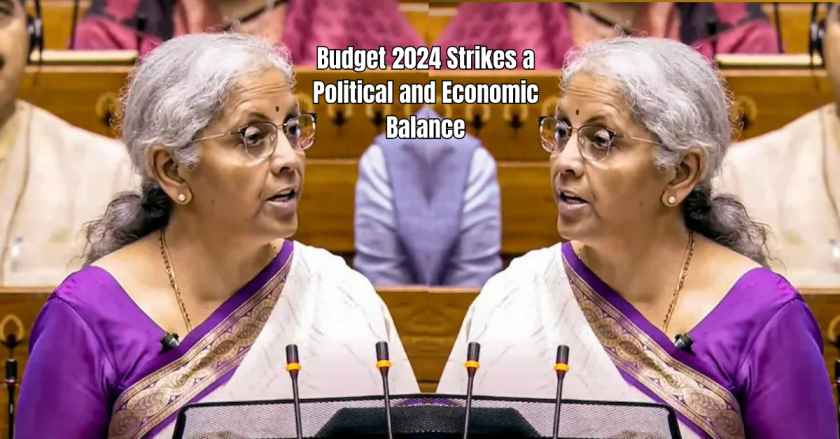From Angel Tax AbolitionUnion Finance Minister Nirmala Sitharaman presented the Union Budget for the seventh consecutive time. The political and economic landscape has significantly shifted since her first Budget presentation five years ago. For the first time in a decade, the ruling Bharatiya Janata Party (BJP) relies on its National Democratic Alliance (NDA) allies to govern. This change in political dynamics was evident in Sitharaman’s nearly 90-minute Budget speech, with a considerable focus on Bihar and Andhra Pradesh. The government needs support from Janata Dal (United) and other regional parties in Bihar and the Telugu Desam Party in Andhra Pradesh.
Key Focus Areas
The Budget concentrated on employment, agriculture, and micro, small, and medium enterprises (MSMEs). These areas played a crucial role in the previous Lok Sabha elections. Although unemployment rates have reportedly declined, the quality of employment remains a concern. To address this, various measures were announced to incentivize hiring in the formal sector, including a one-month wage for new workforce entrants and supporting Employees Provident Fund Organisation (EPFO) contributions in the manufacturing sector. Additionally, an internship program in the top 500 companies is expected to benefit 10 million youth over five years.
Groww EV and New Age Automotive ETF
Employment Initiatives
- Incentives for Hiring: One-month wage for new workforce entrants.
- EPFO Contributions: Government support in the manufacturing sector.
- Internship Program: Expected to benefit 10 million youth over five years.
The renewed focus on agriculture aims to improve productivity and market access, addressing food inflation and overall inflation rates.
Fiscal Management
Despite political pressures, the FM maintained prudent fiscal management principles. The fiscal deficit for the current year is projected at 4.9% of GDP, down from 5.1% in the Interim Budget. Both gross and net market borrowings will be lower than in 2023-24. The FM reiterated the goal of reducing the fiscal deficit to below 4.5% of GDP by next year, ensuring central government debt as a percentage of GDP remains on a declining path.
Medium-term Economic Roadmap
The Budget outlined a medium-term economic roadmap focusing on nine key areas, including urban development, energy security, infrastructure, and innovation. The government aims to build on these announcements to guide growth and development. Next-generation reforms will cover all factors of production, requiring support from states for effective implementation. To incentivize states, a significant part of the 50-year interest-free loan will be earmarked for them.
Key Announcements
- Review of Customs Duties: A six-month review to rationalize and simplify the structure, improve trade ease, and reduce disputes.
- Income Tax Act Review: Simplification of the tax law to reduce litigation and provide certainty to taxpayers.
- Capital Gains Tax: Increase in long-term capital gains tax to 12.5% and short-term capital gains tax to 20%.
- Securities Transaction Tax (STT): Increased in the derivatives segment.
How to Select the Perfect Trading Account
Income Tax Changes
The FM proposed to make the new income tax regime more attractive, with salaried taxpayers expected to save up to Rs 17,500 in income tax. The estimated hit to the Budget due to these proposals is Rs 7,000 crore per year. Additionally, the angel tax has been abolished to boost the start-up ecosystem, and several announcements were made to support MSMEs, including a credit guarantee scheme and a new assessment model.
Balancing Economic and Political Objectives
Concerns about political compulsions leading to increased expenditure compromising fiscal management were unfounded. The government is on track to contain the fiscal deficit below 4.5% of GDP by the next fiscal year. The capital expenditure outlay remains at 3.4% of GDP, balancing economic and political objectives effectively.
Summary
The Union Budget 2024 managed to balance economic and political objectives, retaining fiscal prudence while addressing key areas of employment, agriculture, and MSME support. The focus on next-generation reforms and medium-term economic planning sets the stage for sustained growth and development.
